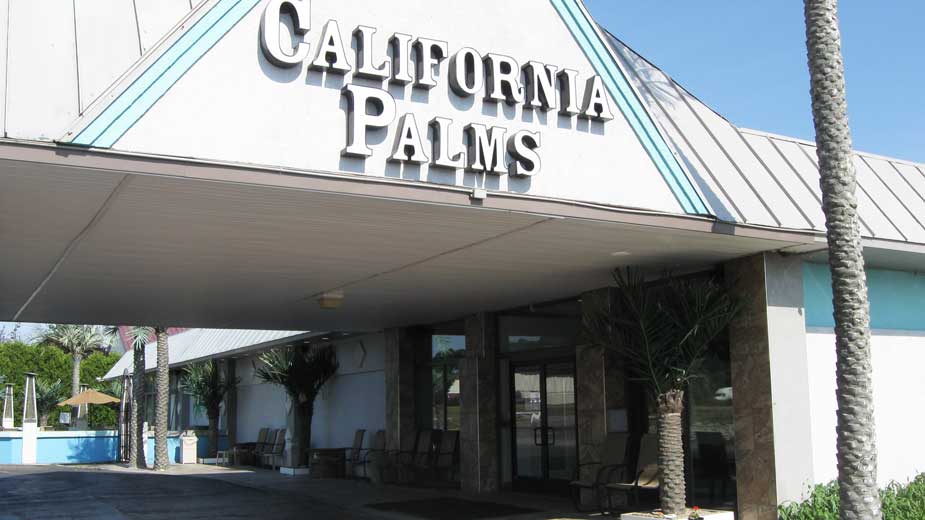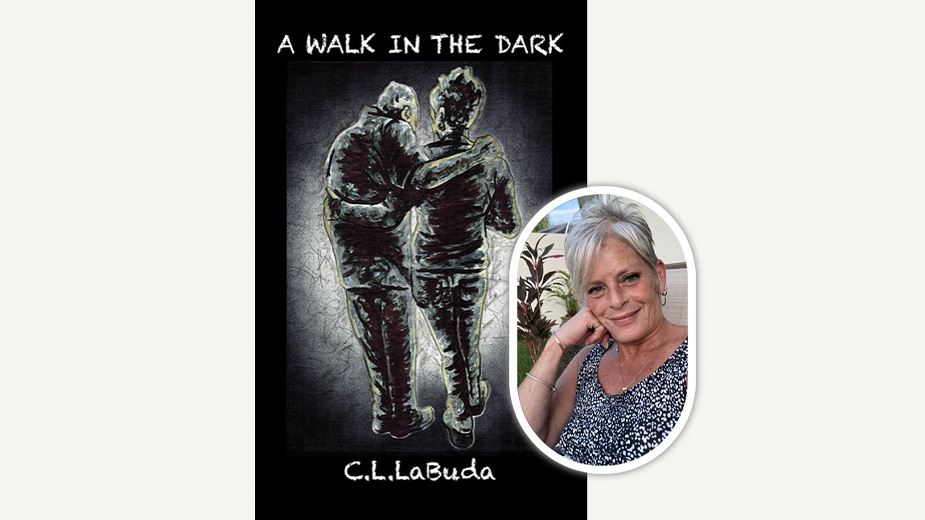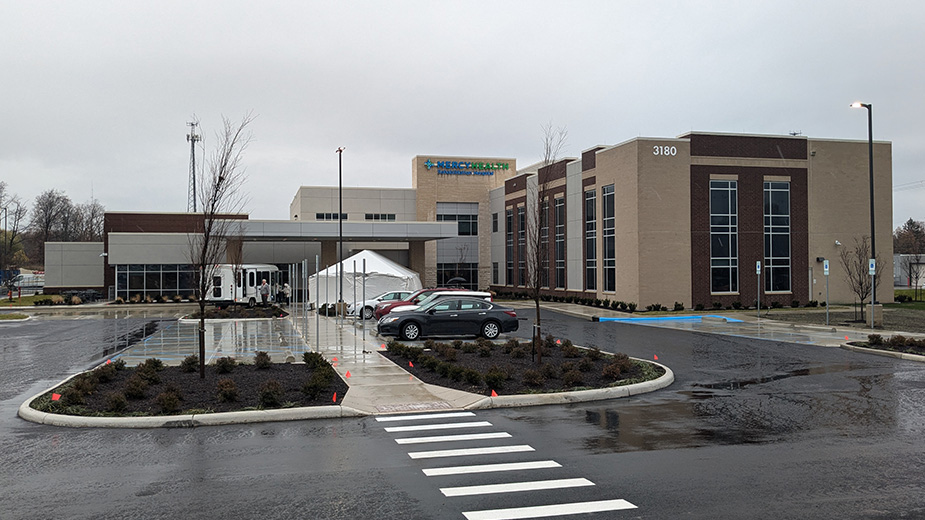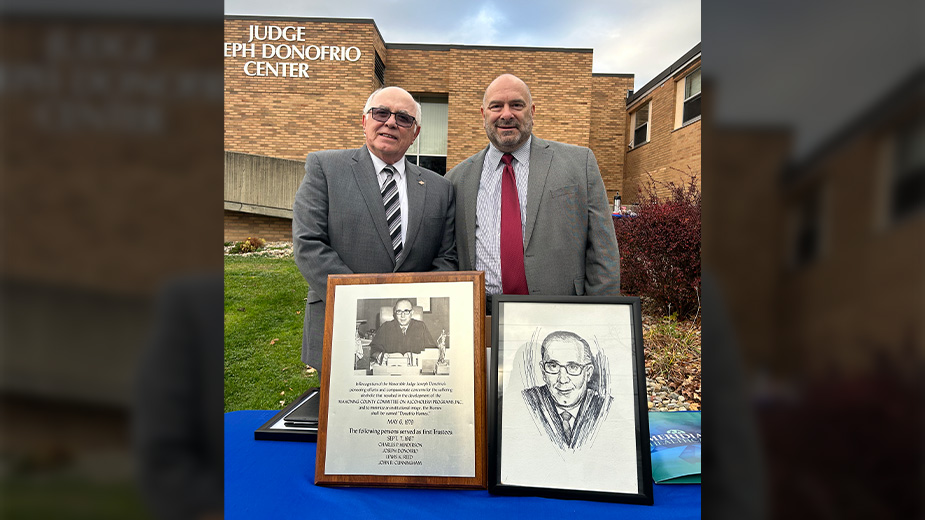Rucci’s California Palms Treats Addicts with Trust
AUSTINTOWN, Ohio – Sebastian Rucci says his California Palms rehabilitation center, with its industry-bucking vision for helping drug and alcohol addicts, is finally starting to bear fruit.
Rucci opened in Austintown in early 2017 but had to overcome a series of regulatory, legal and other hurdles.
It took two years to obtain state licensing and Joint Commission accreditation, another six months to be approved for insurance reimbursement, and then three more months to be approved to accept Medicaid patients.
Today, the California Palms Addiction Recovery Campus on state Route 46 has 50 patients and 36 full- and part-time staff members.
The center still bears the trappings of the resort-style hotel that Rucci formerly ran on the site, then known as California Palms Hotel, including faux palm trees and a fountain.
It has a 200-bed capacity although Rucci’s goal is to maintain a census of between 80 and 120.
Although his level of optimism remains high, Rucci is not yet out of the woods. He has an ongoing court case with his lender that centers on a $4 million loan he took out in 2018.
Rucci sued the lender, Pender Capital Asset Based Lending Fund, for breach of the loan. Pender then foreclosed, after which Rucci filed a countersuit that disputes the debt amount; those cases are pending. Rucci, who is a lawyer, has also filed a stay to delay any foreclosure action.
In the meantime, the rate of inquiries California Palms gets from potential patients has tripled to about 40 per day – a rise spurred by the COVID-19 pandemic and the isolation and stress it causes.
The pandemic “is superimposed on the ongoing epidemic of drug overdose deaths,” Rucci said. “We are balancing the risks of two potentially deadly diseases.”
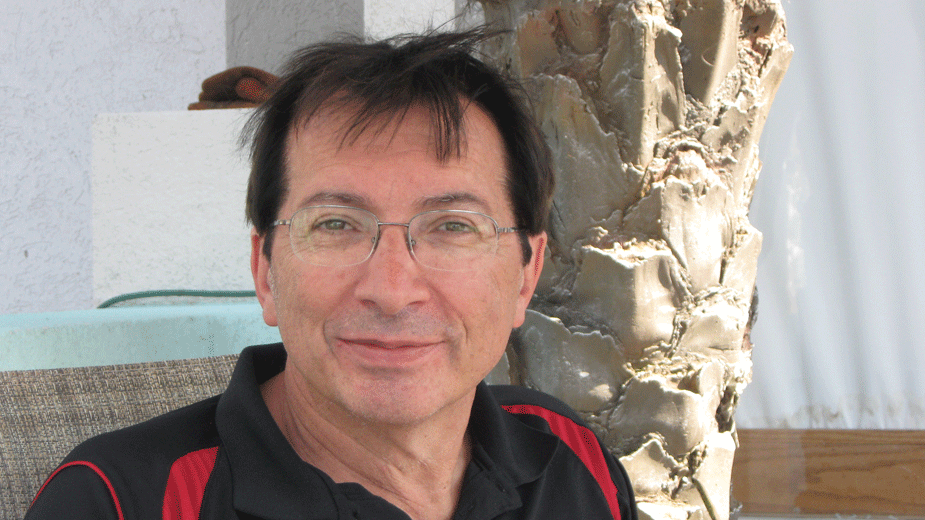
All rehab centers in the Mahoning Valley are full, or nearly full, he says.
Since it opened, California Palms has treated 517 patients, many for 90 days, and has given away $2 million in free care, Rucci says.
“We have never had an overdose during that time and have countless success stories,” he says. “Looking back, we may have saved a couple of hundred lives. This would not have been possible without me living on-site and doing every task personally at first.”
The road, he said, has been full of mistakes and corrections but the center stayed true to its vision. Its patients are treated as adults and shown trust. The goal is to teach them good life habits, personal growth interests and goals – a car, a job, an apartment – so they can succeed when released.
California Palms offers detoxification treatment. It has a staff of doctors, psychologists and counselors, plus kitchen, maintenance and security employees. In addition to the required classes, it offers patients special interest sessions, including music, crafts, chess, boxing, karate and dance.
The center puts an emphasis on screening potential patients before admitting them so it can find those who are most motivated and can handle the degree of freedom at the center.
Patients are not locked down or forced to remain on the campus. They are treated with a system based on trust and reward.
About 20% of California Palms patients are combat veterans of the armed forces. These include Jake, a 30-something Army veteran who saw duty in Iraq.
Jake was wounded twice and became addicted to oxycodone after being prescribed the painkiller by an Army doctor. He also suffers from PTSD and a brain injury.
“For two years,” Jake says, “I hunted humans. You come home different but your family expects you to be the same person they knew before you left.”
Since returning, Jake has been in several rehab centers until finding recovery at California Palms.“This place saved my life,” he says.
Combat veterans have daunting problems assimilating back into civilian life, especially those with PTSD, although they tend to be more motivated and structured than the Medicaid patients, Rucci says.
Medicaid patients often grew up disadvantaged, with abusive or dysfunctional family life, and have done time in jail. Many have no job or job skills.
For these patients, Rucci and his staff step in as coaches, if not father figures.
William, also in his 30s, is one such patient. Since beginning treatment at California Palms, he has regained his driver’s license, bought a car, got a job and, most important, “I saw my child for the first time in a long time,” he says. His child visited him last weekend at California Palms.
Gerald Shulman of Jacksonville, Florida, is a clinical psychologist and addiction counselor and a Fellow of the American College of Addiction who has provided treatment, clinically or administratively, to alcoholics and drug addicts since 1962.
He is an author of the American Society of Addiction Medicine’s Criteria Assessment for Placement, an industry guide for treatment.
He worked with California Palms as a consultant for six months before the coronavirus outbreak. He said the program stands out because of its freedom and its results.
“The problem is, if you are a restrictive program, that’s great while patients are in there but some day they have to leave,” Shulman says. “[California Palms] is giving them some ability to succeed when they leave.
“[Rucci] appeals to a different part of these folks,” Shulman says. “They’ve been in jail and been told what to do and when to do it. He, in some ways, is like a father. He gives them an opportunity to behave in a responsible way while preparing them for when they have to go back out into the world.”
Two of Rucci’s brothers, he notes, have died of heroin overdoses.
As a sign of faith in California Palms’ approach, Shulman put his money where his mouth is.
“Because of [Rucci’s] financial problems, I didn’t get paid early on,” he says. “But I knew the time would come when he would make me whole. And I have to have a lot of faith in a guy to do that.
“I was so hooked into the program,” he continues. “I feel like it’s partly my own. [Rucci] would write a policy and then ask me to go over it and make changes.”
Rucci garnered a lot of negative headlines over the years, which are rooted in Go-Go Girls Cabaret, an adult club he briefly operated on the site more than a decade ago.
Police raided the club and Rucci found himself facing multiple charges, alleging prostitution and drug trafficking at the club. He was eventually found guilty of four state liquor license violations and served 30 days in jail in 2015.
Rucci says he knows that he will always have some controversy attached to his name. But it should no longer detract from or overshadow the good he is doing at California Palms Addiction Recovery Campus.
His goal, he said, is to eventually open campuses in Cleveland, Columbus and Cincinnati, and separate facilities for veterans.
Pictured: Sebastian Rucci says his patients are treated as adults and shown trust.
Copyright 2024 The Business Journal, Youngstown, Ohio.
